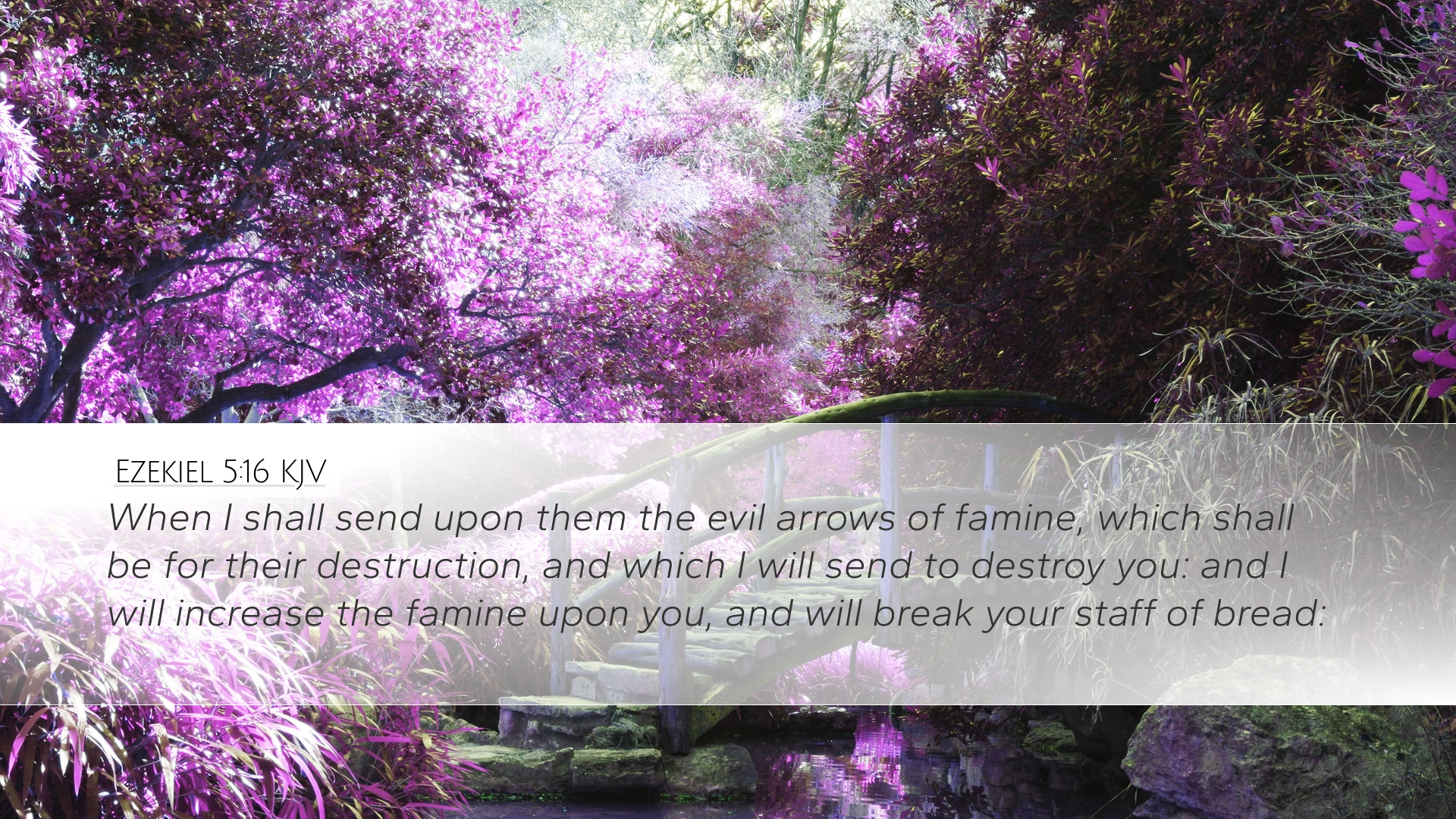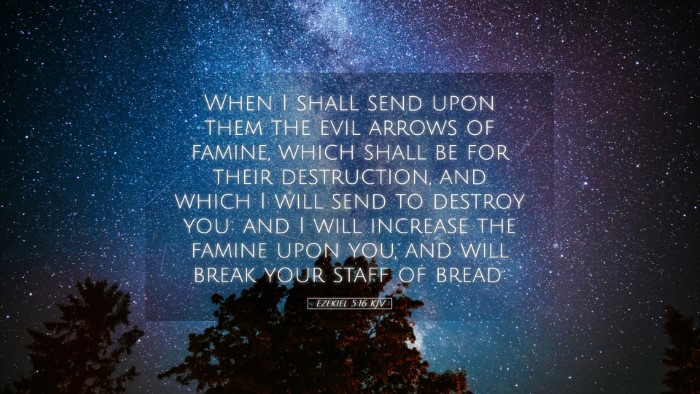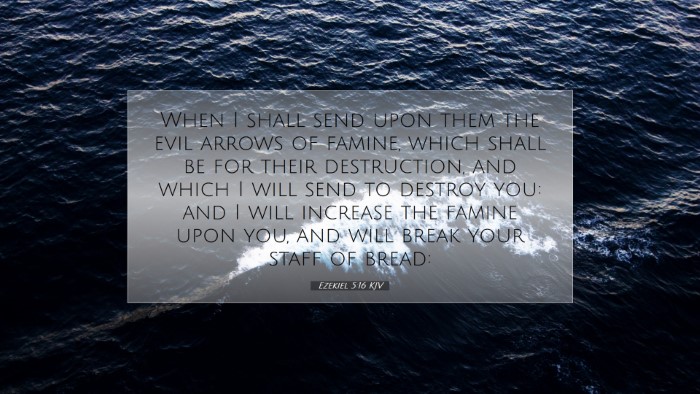Ezekiel 5:16 - A Deep Dive into the Prophetic Message
Verse (Ezekiel 5:16): "When I send upon them the terrible arrows of famine, which shall be for destruction, and which I will send to destroy you; and I will increase the famine upon you, and will break your supply of bread."
Contextual Understanding
This verse is situated within the dramatic prophetic proclamations of Ezekiel. The prophet, acting as a mouthpiece of God, provides a stark warning to the Israelites of the impending judgments due to their disobedience and idolatrous practices. The imagery of arrows evokes an image of swift, unavoidable judgment.
Analysis of Key Themes
- Divine Judgment: The context shows God's determination to address the rampant sin within His people. The arrows of famine symbolize not just a physical lack, but a spiritual warfare that reflects God's anger towards sin.
- The Symbolism of Famine: Famine in biblical terms is often associated with divine judgment and a sign of God's displeasure. It represents a period of testing and trial, urging the people to repent.
- God's Sovereignty: The assertion that God sends famine underscores His absolute sovereignty over nature and His ability to utilize it for His purposes, demonstrating that even calamity is under His control.
Commentary Insights
Matthew Henry's Commentary
Matthew Henry highlights that this passage admonishes God’s people about the dire consequences of their continued rebellion. He notes that the 'arrows of famine' are not only for punishment but also serve as a wake-up call for repentance. Henry emphasizes that God’s actions are deliberate and intended to bring about a change of heart.
Albert Barnes' Commentary
Albert Barnes elaborates on the metaphoric language used by Ezekiel, describing the arrows as swift and penetrating. He underscores that this famine is not merely a societal occurrence but a covenantal judgment from God. Barnes asserts that while famine brings physical hardship, it also reveals the spiritual starvation of the people who have turned away from divine sustenance.
Adam Clarke's Commentary
Adam Clarke notes that the intensity of the famine is proportionate to the people's sins. Clarke draws attention to the phrase "increase the famine," suggesting that the lack of bread symbolizes a withdrawal of God's provision, highlighting the severity of their estrangement from Him. He calls attention to the prophetic nature of Ezekiel's warnings as a means to redirect the hearts of the Israelites towards God.
Theological Implications
The passage raises significant theological discussions regarding the nature of God as both just and merciful. It challenges readers to understand that while God may allow suffering and famine, it serves a greater purpose in calling His people back to Him. The faithful can reflect on how trials often serve as blessings in disguise, providing opportunities for growth, repentance, and renewal of faith.
Application for Today
For contemporary believers, Ezekiel 5:16 serves as a sobering reminder of the consequences of collective sin and disobedience. In a world filled with distractions and spiritual apathy, the verse calls for introspection and accountability within communities of faith.
Concluding Remarks
This verse encapsulates the essence of prophetic literature that urges God’s people to heed warnings, repent, and return to their Creator. As pastors and scholars reflect on this passage, they are reminded of the holistic nature of God's judgment which aims not only at punishment but ultimately restoration and reconciliation.


